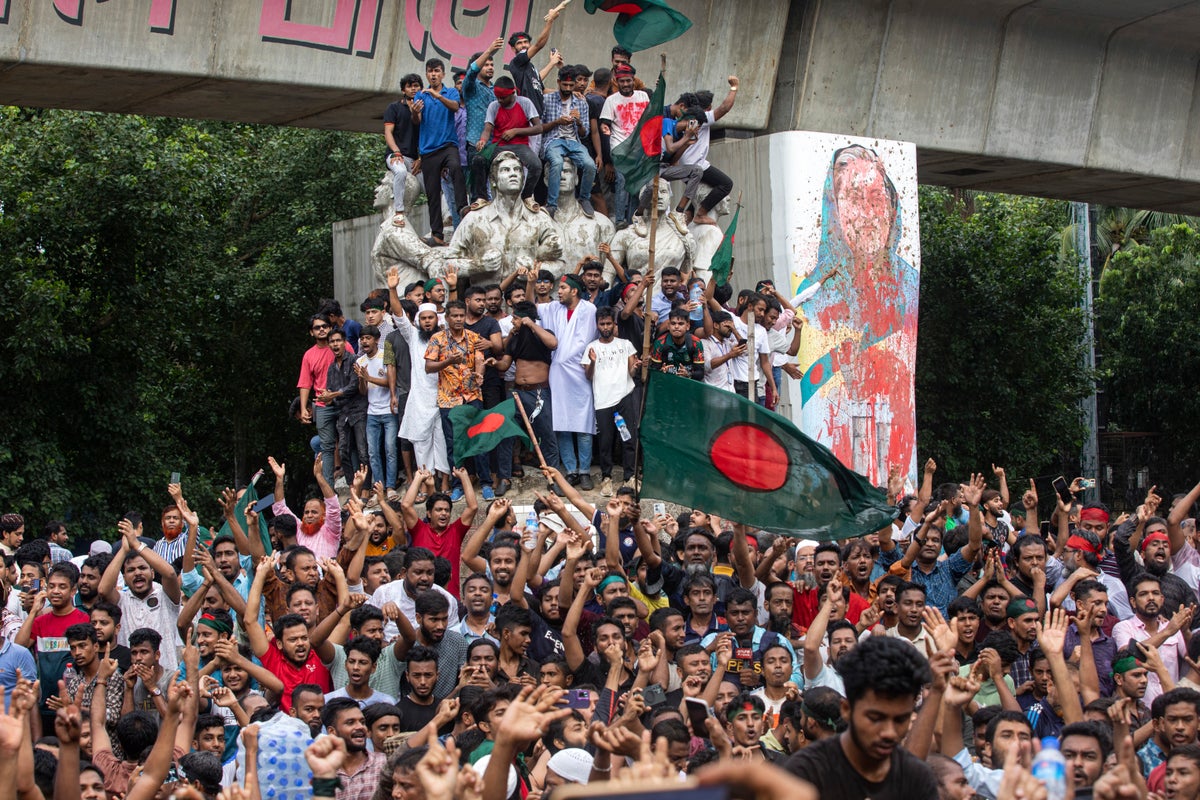
Support truly
independent journalism
Tens of thousands of protesters surged through the capital of Bangladesh, this time in joy, after Prime Minister Sheikh Hasina resigned on Monday to end 15 years in power and fled the country.
The weeks of protests had begun peacefully as frustrated students demanded an end to a quota system for government jobs, but they turned into an unprecedented uprising against Hasina and her ruling Awami League party. Anger also lingered from January's election, which saw the jailing of thousands of opposition members.
The government responded to the protests with force, leaving nearly 300 people dead and fueling further outrage. The prime minister had called the protesters criminals and said they should be treated with an iron hand.
Over the weekend, protesters called for a “non-cooperation” effort, urging people not to pay taxes or utility bills and not to show up for work. The weekend of violence left dozens of people dead in the predominantly Muslim nation of over 160 million people.
On Monday, protesters defied a military curfew to march into the capital’s center. This time, troops pulled back. As internet access was restored, people began to celebrate in the streets. Thousands stormed the prime minister's official residence, and Hasina fled.







